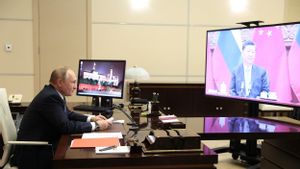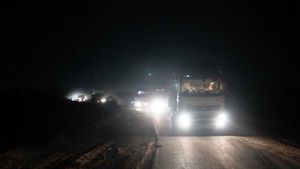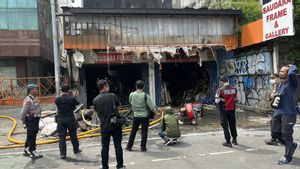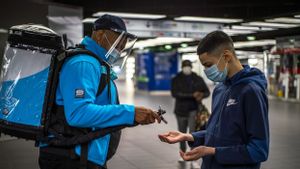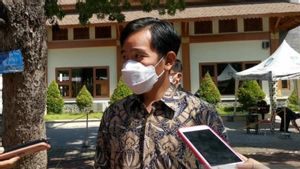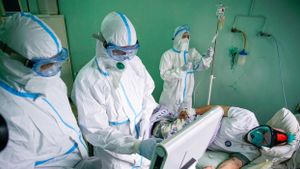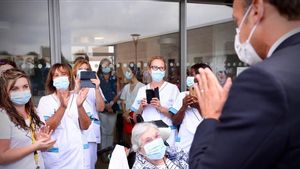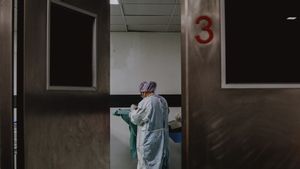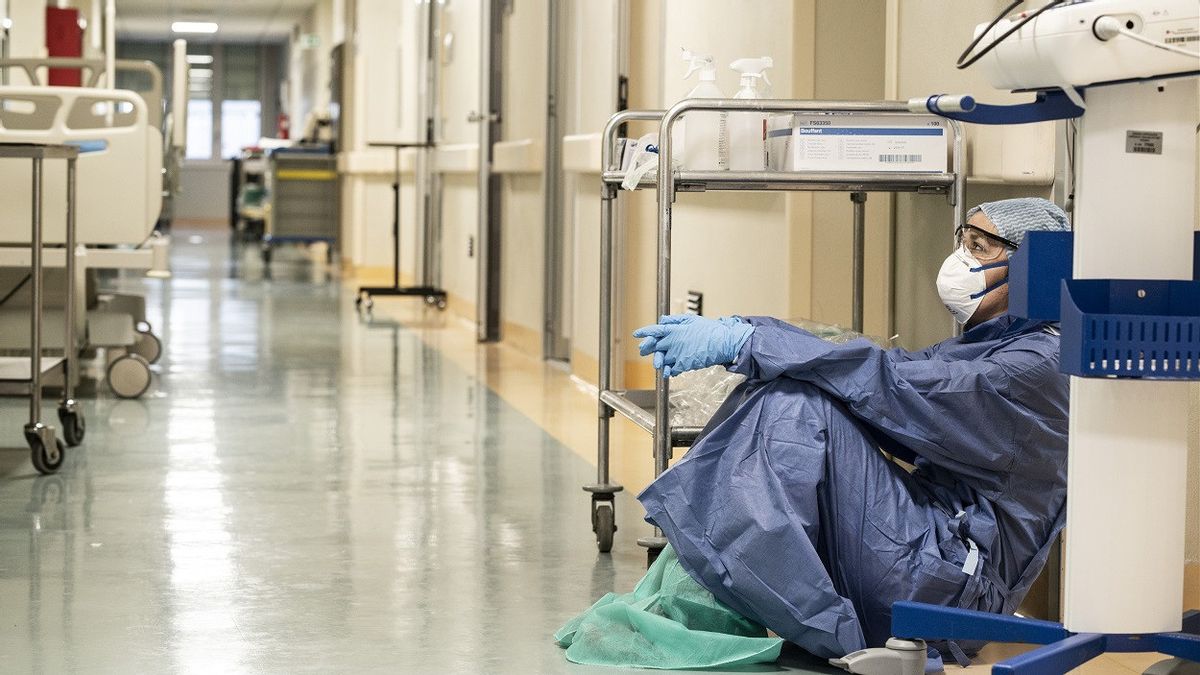
JAKARTA - Doctor Ruxandra Divan, an intensive care anesthesiologist in eastern France, slumps against the walls of her department, exhausted by the prospect of tackling a new wave of COVID-19 with drained staff.
"This is because we are exhausted", Divan said on Wednesday, in the middle of his shift at Colmar Hospital, near France's borders with Germany and Switzerland.
"People are sick of dealing with unvaccinated patients. We are really tired".
Health care systems across Europe are facing more acceptance of COVID-19, with infection rates accelerating, and additional uncertainty about how the new Omicron variant will affect public health.
In the City of Colmar, the task becomes even more difficult as the team that must overcome this new wave is drained by many people on sick leave, by people who quit, and by the low morale of those who persist.
In her office, Doctor Elisabeth Gaertner, who runs intensive care services for the Colmar public hospital system, reviews the list of people on sick leave: 4 of 20 nursing assistants, 5 of 15 cleaners, 5 of 37 nurses in surgical intensive care.
Another staff has quit, many of them lured to work in private clinics, or nearby Switzerland, for better pay and fewer hours.
One of the factors that led them to leave the country, according to him, was that most of the most serious cases they had to deal with in the last wave were people who chose not to be vaccinated.
"There is a feeling of anger and frustration among hospital staff", Gaertner said.
Health care systems across France are feeling the cumulative strain of the nearly two-year-old pandemic.
Health Minister Olivier Veran in an October interview with French newspaper Liberation said his ministry expects there to be nearly a third more vacancies for medical professionals this fall than in the same period in 2019.
Meanwhile, the French Scientific Council, which advises the government on COVID-19, said in an Oct. 5 report, the health care system "has become fragile after this long period of COVID, during which it is constantly at the forefront".
Separately, Doctor Eric Thibaud, who runs the Emergency Department at Colmar hospital, said 10 percent of his staff were on sick leave.
In recent weeks, a doctor from the department has gone to work elsewhere with fewer night and weekend shifts, a nurse has quit, and a receptionist has left.
The staff though is relatively stable, he said. Another unit at the hospital was worse off.
"There's been a huge number of people leaving who are exhausted, who have changed their lives, who don't want to bow down to what they've been through over the last few years, and who have only gotten worse recently".
In the Intensive Care section where Dr. Divan works, the 13 beds are now occupied by COVID-19 patients. Of these, 11 were not vaccinated. All are relatively young. They have been intubated and ventilated.
BACA JUGA:
The frustrating part for hospital staff, he says, is that the current state of affairs could have been avoided if the same people had chosen to be vaccinated.
"It's getting harder and harder for people to come and treat COVID patients. Why all the distrust of this vaccine? I don't understand", wondered Divan, who moved to France from Romania.



